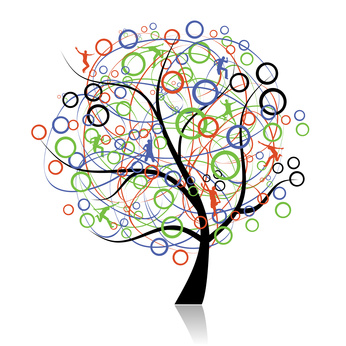If we truly intend to strive towards cultures of sustainability we must also be able to identify the pattern of unsustainability, and not be afraid of the complex systems we are part of. We are interdependent on each other, and we cannot simplify ourselves out of a situation. Technologies only wont prevent the climate-crisis from happening, (environ)-mental change will.
When we are trying to understand ourselves, or when inventing technological solutions are some of the only times we want less (simplicity) and not more (complexity). But it is also in the simplicity of things that we forget the major dimensions of the problems we face – especially, when we act upon the knowledge we are presented to and end up frustrated because our constructed simplicity overshadows the elements of calculation.
The ability to understand complexity is in reality a gain, an asset, a super-power, and a prosperous value. Complexity allows us to speak and relate to Nature, our fellow humans, and the future in a way that makes it easier to see through problems and embody ecosystems, as we would be able to identify possibilities simplicity does not allow us to discover.
When ecological consequences of exploitation of natural resources become so unavoidable that we must incorporate consideration toward Nature in our plans of actions, we “attach” Nature as an external concern to our practices. We simply ignore the interdependency (complexity), and therefore repeat the patters that led to our ecological crisis, since we are not aware of the mentality, which created it. This detachment and emotionless behavior echoes the industrialization and the invention of the machine and technology. Everything started to become “simple” in the 17th Century, and we gave up complexity for a basic and “easy” version of reality, and ourselves, but instead gained more problems than we have been able to handle.
No, we are not going to solve our climate-change crisis with renewable energy. We are going to solve climate-change with (environ)-mental change.
Unsustainability is the inability to think and engage in complex patterns. We have forgotten that Nature is engrained in our mental systems, in our social systems, in our resource systems, and as long as we do not identify unsustainability, we won’t be able to address sustainability. When we are educated within only one field, and the present social systems praise mainly the natural sciences, we won’t be able to solve interdisciplinary issues related to humanity.
Luckily culture, emotions, and mindsets express themselves through art, literature and social activism. Even medical students at Harvard meet at museums to study art to become better doctors and learn observation, interconnectedness and empathy. But when, and if, we detach us from the arts, from the divine, and the prosperity of emotional and intellectual wealth (complexity) we also lose the possibility of the transition to sustainable cultures, because we aren’t able to relate to more than one dimension at the time. And we all know, that ecosystems are diverse and complex.
Just like a diverse gene pool creates the healthiest offspring and ecosystems, we must make cultural diversity mainstream. Otherwise we are risking a one dimensional and inbred culture. How does this, then, manifest itself in society?
Through social activism like urban food co-ops, rooftop farms, urban bee-keeping, re-bike-cycle shops, car-swapping and clothes libraries we are presented to diverse solutions to our needs, and thereby we learn to think in complex patterns and not in one-dimensional solutions like “we’ll get everything at the mal”. Through literature that presents us to a lush and diverse language, with words and imagery creating many different emotions that activates our senses and empathy. Through art that combines genres, mindsets and expressions, which opens up for the understanding of interconnectedness. Through interdisciplinary education that forms us as intellectual, critical thinking human beings with a strong understanding of many fields to make us better at identifying interrelated possibilities and problems.
To truly understand the crisis we’re facing, we must not focus only on climate change. We need to understand the interaffiliations between our mental systems, the material systems, and social infrastructures we have created.
Complexity should not be unwanted. Complexity should be what we strive for, as it gives us more: more possibilities, alternatives, inventions, knowledge, skills and a whole new understanding of ourselves in relation to Nature. Simplicity gives us less of everything.


